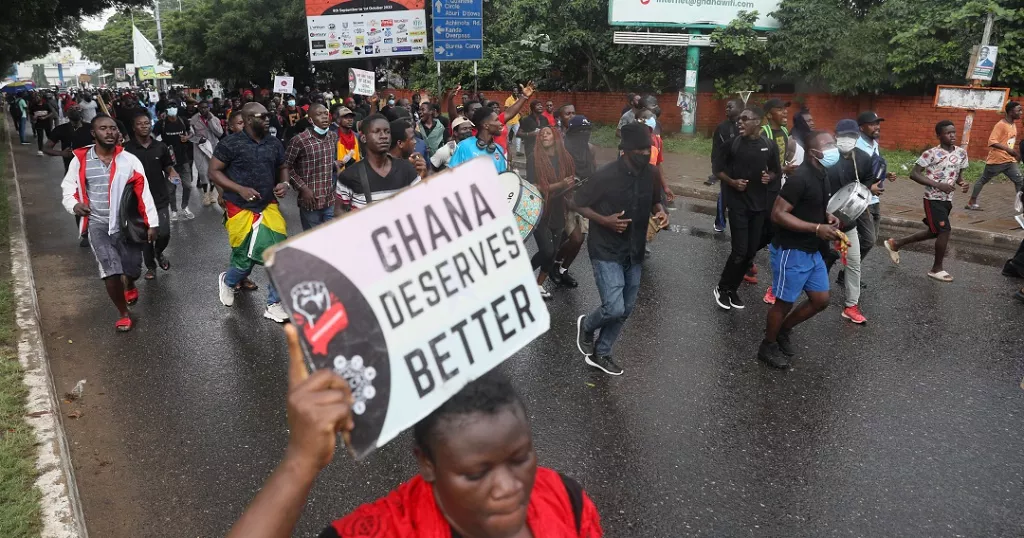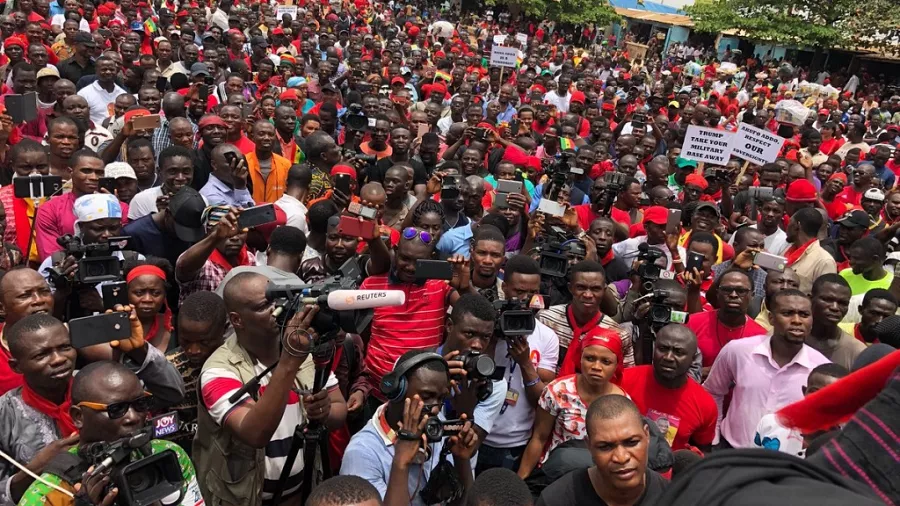A high court in Ghana has issued a ban on planned protests in the capital city of Accra, according to one of the event organizers. The court’s decision aligns with actions taken by other African governments to quell youth-led demonstrations against the high cost of living.

Justice Abena Afia Serwaa of the high court approved a request from Ghana’s police to prohibit several organizations from conducting protests scheduled between July 31 and August 6. The police cited a lack of personnel to provide adequate security, as officers have been deployed to political rallies amid ongoing election campaigning.
Organizers had anticipated that over two million people would participate in the protests. Their demands included more action from President Nana Akufo-Addo on corruption and living conditions, as well as protests against delays in signing an anti-LGBT bill into law.
Mensah Thompson, one of the protest organizers, expressed concern over the court’s decision, stating that elections should not prevent citizens from exercising their right to demonstrate. He warned, “Young people are poised to demonstrate with or without the approval of the authorities.”

The ban in Ghana comes amidst a wave of youth demonstrations across several African countries in recent weeks:
– In Kenya, over 50 people have been killed and nearly 700 arrested during protests against tax increases proposed by President William Ruto.
– Uganda saw young people protesting against alleged corruption, resulting in police shutting down a march and arresting more than 70 individuals.
– Nigeria offered incentives to its youth, including jobs in the state-oil company and grants, to discourage planned nationwide demonstrations.
Ghana’s economy has faced significant challenges, exacerbated by the COVID-19 pandemic, the impacts of the war in Ukraine, and higher global interest rates. The country is currently restructuring most of its $30 billion external debt to implement a $3 billion, three-year International Monetary Fund bailout program.
As Ghanaians prepare for legislative and presidential elections in December, the ban on protests adds another layer of complexity to the country’s political landscape.



